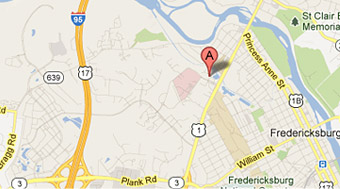What Is An Oral Surgeon?
 An oral surgeon performs oral and maxillofacial surgery to treat diseases and correct defects in the face, head, neck, jaws, and the soft and hard tissues of the mouth and jaw region with oral surgery.
An oral surgeon performs oral and maxillofacial surgery to treat diseases and correct defects in the face, head, neck, jaws, and the soft and hard tissues of the mouth and jaw region with oral surgery.
An oral surgeon works within one of the nine specialties of dentistry that is recognized by the American Dental Association. The specialty requires an additional three to six years of in hospital training after dental school. In the USA, a four year program of residency grants a certificate of specialty training in oral and maxillofacial surgery. A six year residency grants that particular certificate, plus a medical degree such as MD or DO.
Oral Surgeon Specialties
Some of the types of surgery that is involved with this level of training includes the removal of wisdom teeth, surgery for dental implants, facial trauma from accidents and disease and the reconstruction required to restore the area involved, facial procedures for cosmetics, oral pathology, and corrective jaw surgery.
Wisdom teeth need to be extracted when they are blocked or prevented from erupting properly in to the mouth. They may be impacted by bone or be crooked and are unable to emerge.
Dental implants are teeth that are placed into a foundation within the jaw which feel, look, and function just like actual teeth.
Jaw surgery can be required when the jaws meet improperly and when teeth fail to meet within the jaws when a bite occurs.
Injuries to the facial and jaw area are very traumatic to patients emotionally and physically. These types of situations can occur from accidents or disease. The area can be restored with proper oral surgery.
Measuring and improving the fit for dentures is a common service provided, as many times minor adjustments are all that is needed in order to provide a good and comfortable fit.
Temporomandibular Joint Disorders (TMJ) results from the dysfunction of the small joint just forward and below the ear. It is the source for facial pain, headache, and overall discomfort for that area. Most patients can be treated with physical therapy, medication, and splints. However, advanced cases may require surgery to correct the joint itself.
Each procedure can be entirely different in detail from previous surgeries, yet the basics are similar. The oral surgeon is a highly trained specialist who is able to deal with any type of situation as it comes up and restore the patient back to a normal function of the area, which in turn gives the patient a whole new outlook on life.
Oral cancer and surgical solutions to that end are areas that are many times what will halt further spread of the cancer. In many cases the cancer is discovered in the mouth or jaw during an examination.
The discovery of the location and the removal of tumors in the mouth, jaw, and neck are within the scope of the type of pathological surgery that is done. Many times the removal of the tumor stops further growth or spread to other parts of the body.
Oral surgery covers a wide range of issues that occur in and around the face, head, neck and jaw areas. Give us a call today for an appointment!




